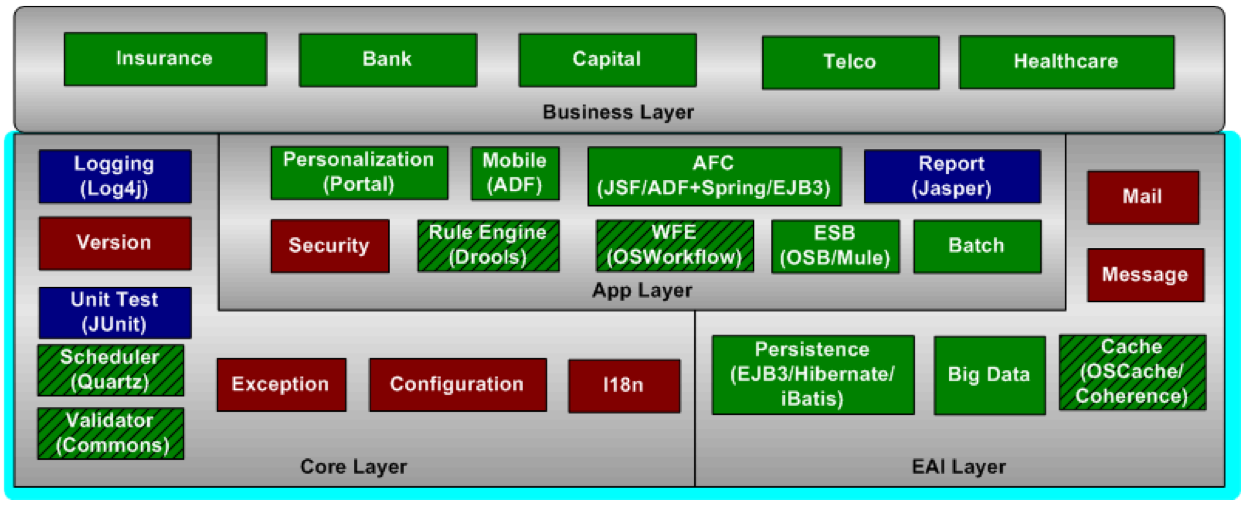A framework is a set of cooperating components and services that makes up a reusable design and behavior for a specific class of software. It provides architectural guidance by partitioning the design into interfaces and defining their responsibilities and collaborations. It also provides reusable behavior by default implementations for those interfaces. Coherent applications can be built by customization or instantiation of frameworks. As such, a reusable framework provides a stable intermediate foundation for application to build upon

Java Component Service Framework (SCF) is a service oriented, component based enterprise Java application development framework. It encapsulate best practices in architecture, design, and implementation from hundreds of projects implemented all over the world, provides foundation for the development of Java enterprise applications, ensures consistency in application development across organizations, and enforces reusability at architecture, design and code levels while fully utilises architecture and design patterns. SCF is
- Service oriented
- Component based
- Multi-layer
- Multi-tier
- Minimal coupling
- Maximum cohesion
- High pattern density
The architectural goal of SCF are
- Simple: low the learning curve
- Extensible: allow easy and coherent extension
- Reusable: encapsulate domain and design solutions to recurring requirements and problems
- Modular: high cohesion, low coupling to limit change propagation
- Portable: deploy on any J2EE environments
- Scalable: meet changing service demand linearly
- IOC(Inversion of Control): allow framework rather than applications to control the application flow
- Performant: fast response/high throughput
SCF has been deployed in many different industries such as banking, insurance and logistics, and helping our clients to improve their development efficiency by as much as 40%.
 Yang Brothers
Yang Brothers Email Us
Email Us